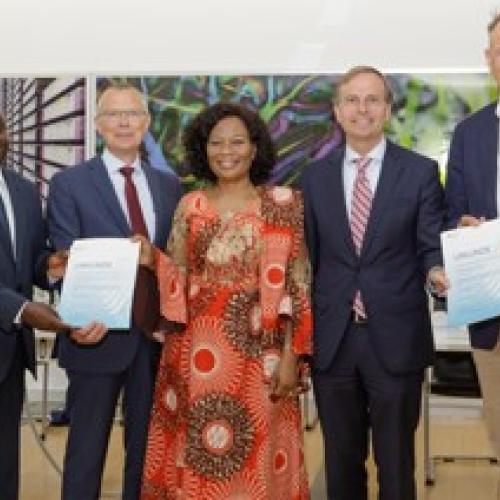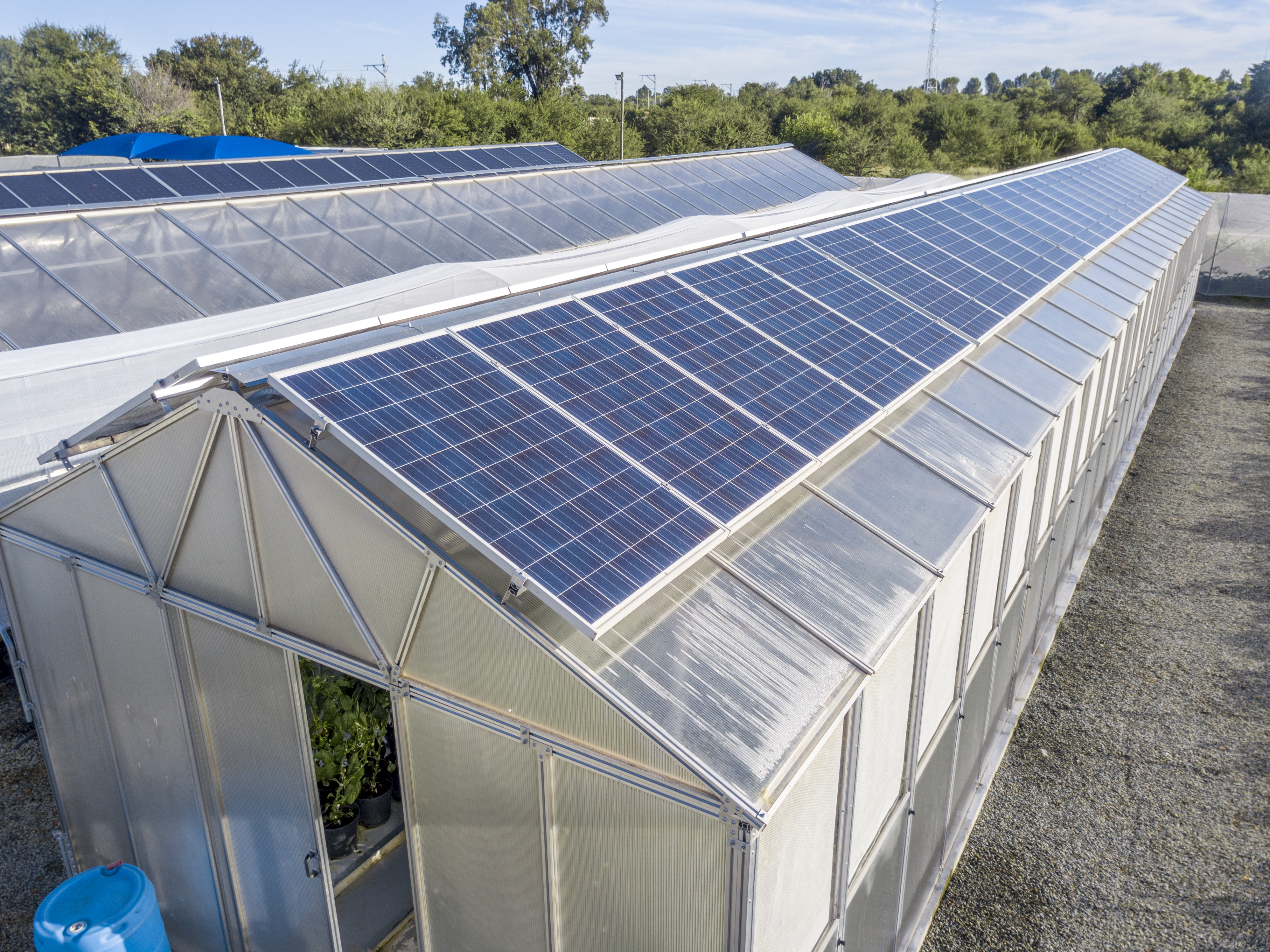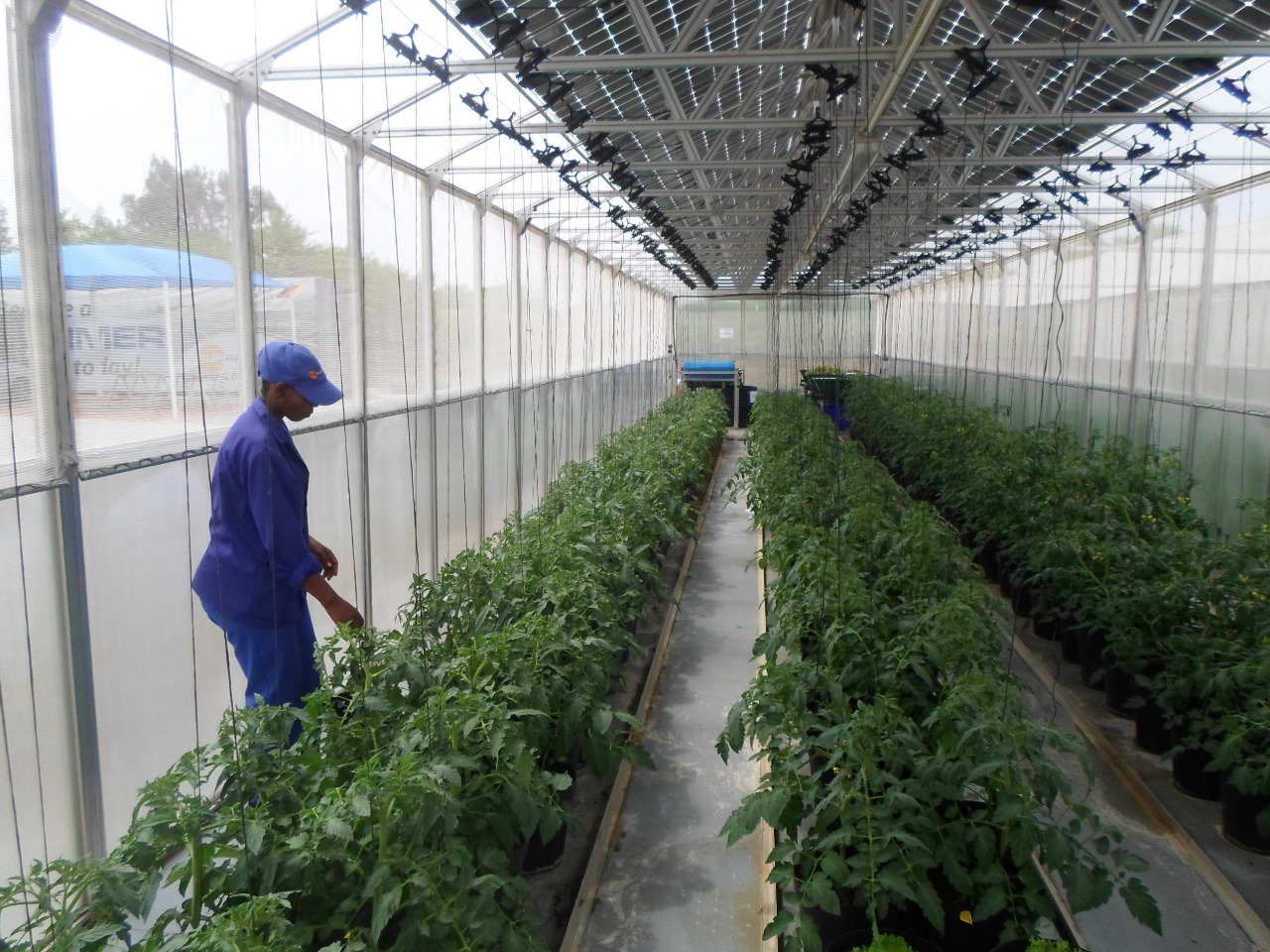High-level guests attend kick-off event for YESPV-NIGBEN at FZ Jülich

Coordinator: Forschungszentrum Jülich GmbH
Contact Person: Dr. Solomon Agbo
Address: Wilhelm-Johnen-Straße, 52428 Jülich
Phone: +49 246 1611666
Email: s.agbo(at)fz-juelich.de
Project partner in Germany
Project partner in targeted countries
With an average annual population growth rate of 2,5% in the past ten years, Africa has the fastest growing population of all continents. This implies a growing demand for food and energy as well as attendant land use challenges. Post-harvest food wastages caused by poor storage facilities and a general lack of access to clean energy are key issues affecting sustainable development in Africa. The German-African project YESPV-NIGBEN therefore addresses food production and preservation as well as energy production. It focusses on innovative ways of maximizing food and energy production through maximized land-water use by implementing photovoltaic-supported greenhouses for simultaneous food and energy production. Both the PV-supported greenhouse and the conventional solar drying systems will be tested in the tropical climate of Nigeria and Benin where acute energy crises and food shortages are threats to sustainable development.
Due to a growing population, Sub-Saharan Africa is faced with the threat of a food and energy crisis. There is an urgent need to find climate-smart ways of generating energy as well as producing and preserving food. One major issue in this context is the need to resolve the usual conflict between using land for food or energy production. In the light of the global climate crisis, it has moreover become increasingly relevant to employ energy and food production methods that mitigate against climate change.

The main aim of YESPV-NIGBEN is to support food and energy production in Nigeria and Benin by employing climate-friendly and efficient land-use means of food and energy production. Of particular interest is an integrated food and energy production concept that utilizes a photovoltaic-supported greenhouse to produce food and energy at the same time. The partners in this project aim to understand this concept through research and transfer the knowledge to the local host communities. The project results shall contribute towards a clear roadmap for implementing renewable energy technology in Africa and shall be used as a guideline for policy makers, investors, researchers and other relevant stakeholders.
The usual practice in land use for energy and food production is to use separately designated lands for food production and for energy. This often results in conflict in terms of choice especially in regions where land availability is a challenge. The technology of combining energy generation through photovoltaics (PV) and food production in a PV-driven greenhouse is a relatively new concept. The energy balance in such a system and its overall yield performance needs detailed investigation especially in the tropical African climate where limited reference data is available. YESPV-NIGBEN will carry out a detailed study of PV and PV-supported greenhouses as well as conventional solar drying greenhouses deployed in the tropical climates of Nigerian and Benin.

The project will employ both theoretical analysis and field experimentation. It will firstly assess the current status of energy production and utilization in the host communities. This will serve as a reference to which a socio-economic impact assessment will be compared at the end of the project. New PV systems, a PV-supported greenhouse and conventional solar dryers will be deployed for field studies after proper design for the designated uses. The systems will be monitored through all seasons. The data collected is analysed to obtain all the necessary information related to the systems performance and their yield profiles.
YESPV-NIGBEN will result in a thorough assessment of the socio-economic impact of PV systems and PV-supported greenhouses for integrated food and energy production as well as solar drying on their host communities. The project will also deliver a reference data set on the yield profile of PV systems in the tropics which will be relevant for PV system designers, installers, potential investors and marketers.
Local capacity building in PV and PV-powered integrated food and energy production through hands-on training of up to 500 local people and students is targeted in the project.
Overall, YESPV-NIGBEN aims not only to improve the socio-economic well-being of the local people in the project´s target areas but also to stimulate the local economy by creating job opportunities and new markets.
